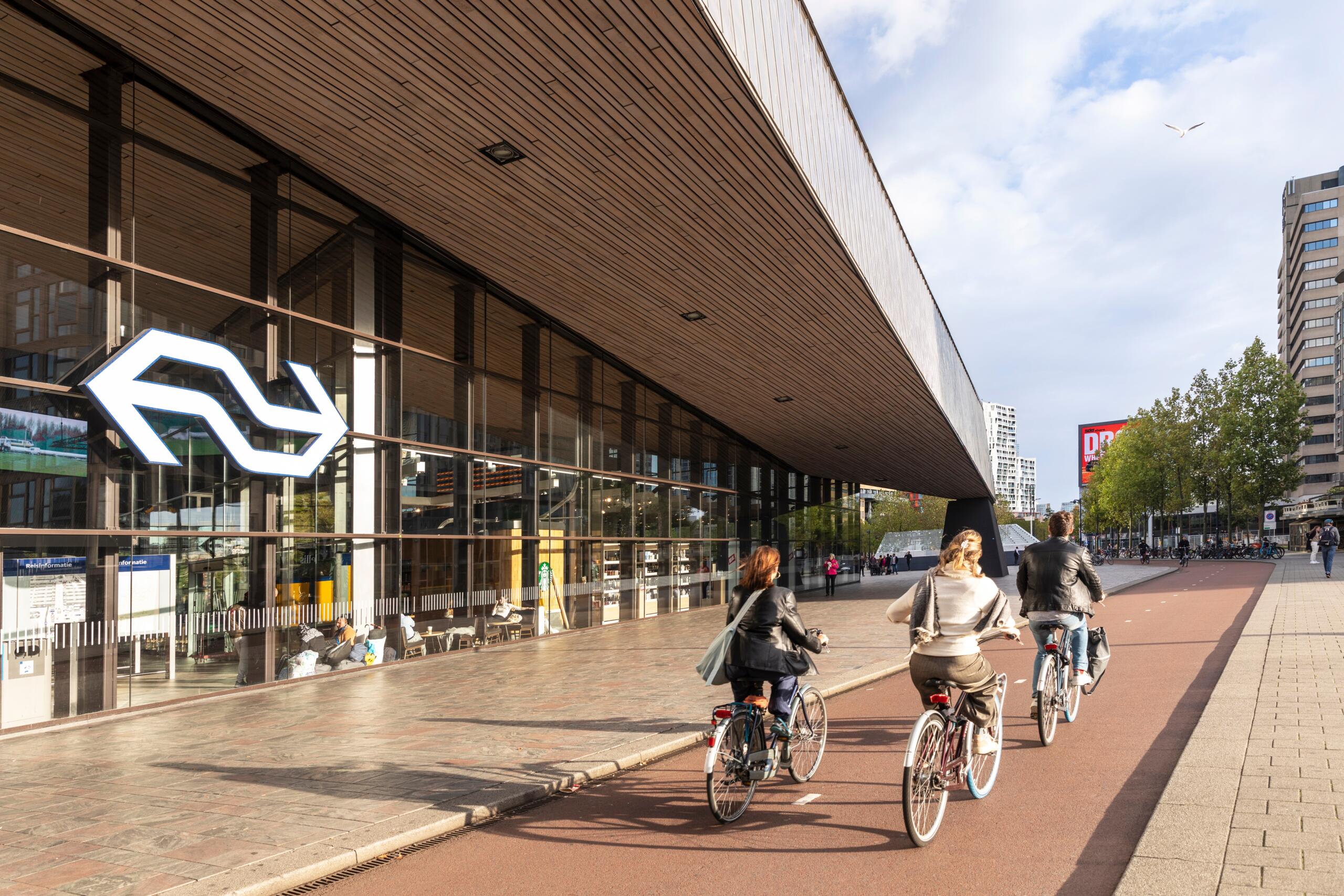Cycling Forward
Recently launched by the European Commission at Urban Mobility Days, the EU Cycling Declaration signifies a higher-level commitment to boosting cycling in Europe. But what does this Declaration truly entail for European cities and regions, and how will it impact the broader landscape of active mobility? POLIS dives in!
To listen to the recording of the article below, please accept all cookies.
Officially launched by the European Commission at the beginning of October amidst the bustling atmosphere of Urban Mobility Days in Seville (Spain), the EU Cycling Declaration stands as a groundbreaking commitment poised to transform the landscape of cycling in Europe.
While it still needs to be signed by the European Parliament, the European Council, and the European Commission, this Declaration already signifies a huge step forward in the right direction. With its main principles divided into eight chapters and 36 concrete commitments, it positions cycling as an indispensable element in the trajectory toward decarbonising European cities - a very much needed step forward.
Doing it right!
The EU Cycling Declaration conveys a definitive message, acknowledging cycling as a standalone mode of transportation that deserves its rightful place in the realm of mobility planning. Its fundamental principles address crucial aspects essential for the widespread adoption of cycling:
- Developing and strengthening cycling policies
- Encouraging inclusive, affordable, and healthy mobility
- Creating more and better cycling infrastructure
- Increasing investments and creating favourable conditions for cycling
- Supporting multimodality and cycling tourism
 These principles and commitments go beyond boosting cycling infrastructure, mode share, or kilometres cycled; they are about doing it right. They aim to transform the way we view transportation, promoting equity, safety, comfort, sustainability, industry innovation, and professional and organisational capabilities.
These principles and commitments go beyond boosting cycling infrastructure, mode share, or kilometres cycled; they are about doing it right. They aim to transform the way we view transportation, promoting equity, safety, comfort, sustainability, industry innovation, and professional and organisational capabilities.
Furthermore, the Declaration holds promise for more than just cycling. It opens doors to other needed improvements in various aspects of urban and active mobility, including walking, wheeling, intermodality, road safety, and quality of public spaces.
This collective vision urges us to fully embrace this multifaceted opportunity and commit ourselves to diligent efforts aimed at making active mobility a seamless, inclusive, and easily accessible choice for individuals of all backgrounds and abilities. In doing so, we are not merely advocating for a shift in transportation preferences but also catalysing a broader transformation in how people interact with their urban environments. It is an invitation to create cities where active mobility isn't just an option, but a convenient and celebrated mode of transportation, making sustainable and healthy living accessible to all.
The beginning of a long path
The journey has just begun, and there's a significant amount of work ahead for European institutions, national governments, and regional and local authorities to translate the principles outlined in the Declaration into tangible action. It's crucial to recognise that while documents like this one are important, they alone cannot bring about the desired changes.
 To unlock the full potential of cycling for citizens, cities, and industries, it's imperative for governance at various levels to seize the opportunities presented by the Declaration. How? By properly structuring their actions, revising their budgets, and working in cooperation to promote the needed change that will support more sustainable and democratic transport modes!
To unlock the full potential of cycling for citizens, cities, and industries, it's imperative for governance at various levels to seize the opportunities presented by the Declaration. How? By properly structuring their actions, revising their budgets, and working in cooperation to promote the needed change that will support more sustainable and democratic transport modes!
The EU Cycling Declaration serves as a potent catalyst and tool for change. It can play a pivotal role in garnering political support for active transportation methods, regardless of the government level. Moreover, it acts as a mechanism to bolster climate-related initiatives by integrating transport into various policies and streamlining the planning and implementation processes for cities. This integration facilitates smoother access to European Instruments like the Social Climate Fund and the Cities Mission.
To effectively bring these aspirations to life, national governments must assume the role of facilitators for change within their regions and cities. How? By providing necessary funding, organisational frameworks, and resources; this includes prioritising cross-border cycling initiatives, addressing rural and isolated areas' needs, aligning budgets, and revising regulations. Encouraging collaboration and enhancing organisational structures among municipalities are crucial steps in realising the Declaration's objectives.
Final thoughts
POLIS joins the choir in praising the efforts of the EU Commission and actively shares its perceptions and recommendations to ensure that cities and regions can fully harness the growing momentum around cycling; this is a unique opportunity to foster consistent development of cycling across Europe by promoting collaboration and knowledge sharing among local and regional stakeholders.
 Whether you are a frontrunner or a late bloomer, there's always room for progress. Dive into the EU Cycling Declaration, craft your plans, and rethink affordability, accessibility, speed limits, and parking policies. Collaborate with local cycling startups, reimagine bike-sharing, and enhance street design and public spaces to make them more inviting and eco-friendly. Ensure that cycling and other active modes are accessible to all.
Whether you are a frontrunner or a late bloomer, there's always room for progress. Dive into the EU Cycling Declaration, craft your plans, and rethink affordability, accessibility, speed limits, and parking policies. Collaborate with local cycling startups, reimagine bike-sharing, and enhance street design and public spaces to make them more inviting and eco-friendly. Ensure that cycling and other active modes are accessible to all.
In the face of challenges, the EU Cycling Declaration illuminates a path of immense opportunity and momentum. As we embark on this transformative journey, let our focus be unwavering — on commitment, innovation funding, policy alignment, and empowering local authorities. Together, let's pedal towards a future where active mobility is accessible to all.
Click here to read the article in its original format.
About the authors:
Andréia Lopes Azevedo is the Active Travel & Health Cluster Lead at POLIS Network. With a background in urban planning, integrated urbanism, sustainable design and architecture, she has extensive experience working on different mobility-related projects in Brazil and Europe. Her work has always focused on sustainable cities and mobility.
Marina Martin Vilches is a Project and Communications Officer and the SMC Platform Manager at POLIS Network. Specialised in urban governance, she currently provides support for POLIS’ corporate communications with a focus on social media and works on electromobility projects. She is passionate about active travel, inclusive mobility, and innovative governance approaches.
